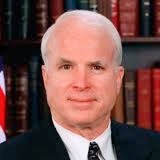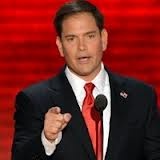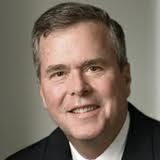- About Us
- Columns
- Letters
- Cartoons
- The Udder Limits
- Archives
- Ezy Reading Archive
- 2024 Cud Archives
- 2023 Cud Archives
- 2022 Cud Archives
- 2021 Cud Archives
- 2020 Cud Archives
- 2015-2019
- 2010-2014
- 2004-2009
 |
Ezy Reading: |
In the aftermath of Obama’s recent election victory, many Republicans and moderate Democrats alike have been hoping for a ‘rebranding’ of the GOP. The goal would be to bring their policies more closely in step with an electorate that, in the endgame, clearly didn’t consider Obama so ‘radically left wing’ after all –or felt alienated by the far too conservative, socially and culturally out-of-touch elements of their own party.
Though current appearances may be deceiving (particularly since his more rabid shift to political intransigency after losing to Obama in 2008) people forget that at least in appearance John McCain (yes, that John McCain) was considered so moderate by some during the 2000 Republican Party presidential primaries as to be considered ‘almost Democratic’. True enough, traditional party principles aside, the natural balance of politics should dictate that Democrats and Republicans meet somewhere in the middle on most core issues. Unfortunately, for more than a decade now, Americans have been witness to the slow, painful death of political bipartisanship, and the poisonous rhetoric and animosity between both parties have generated an ever-deepening divide hindering progress and holding both parties back.
True enough, traditional party principles aside, the natural balance of politics should dictate that Democrats and Republicans meet somewhere in the middle on most core issues. Unfortunately, for more than a decade now, Americans have been witness to the slow, painful death of political bipartisanship, and the poisonous rhetoric and animosity between both parties have generated an ever-deepening divide hindering progress and holding both parties back.
At the same time, the changing political map as well as shifts in social and cultural norms have meant that the traditional ‘middle’ in politics has also shifted somewhat to left, and the old guard of the Republican Party has clearly kept their head in the sand on this stark reality, otherwise Mitt ‘47 percent’ Romney would have never stood as their candidate for the White House. Democrats and Republicans may likely never agree on some of those aforementioned traditional party principles – matters of taxation or government involvement,  for instance – but today support for issues like gay marriage, abortion, gun control and environmental protection is far stronger among most Americans than it appears Republicans seem to realize, and this has been at significant cost of youth and minority votes. Republican Party decision makers have arguably been too damned stubborn in their refusal to submit to change, and far too drunk on that unique brand of Kool-Aid only to be found within the media vacuum of endless Fox News and Rush Limbaugh sound bytes.
for instance – but today support for issues like gay marriage, abortion, gun control and environmental protection is far stronger among most Americans than it appears Republicans seem to realize, and this has been at significant cost of youth and minority votes. Republican Party decision makers have arguably been too damned stubborn in their refusal to submit to change, and far too drunk on that unique brand of Kool-Aid only to be found within the media vacuum of endless Fox News and Rush Limbaugh sound bytes.
True enough, in the aftermath of Romney’s defeat, the Republican Party has been talking a great deal about rebranding themselves and presenting a newer, better image to the electorate as they already look ahead to 2016. The inevitable fall-out has forced many to fall on their swords. As was to be expected, Romney has been practically invisible, swiftly pushed away from most cameras and microphones and destined for a GOP retirement home (which most likely exists on a corporate board somewhere, raking in millions). Roger Ailes of Fox News has benched former Republican heroes like Sarah Palin and Dick Morris, and recently even referred to Newt Gingrich as ‘a prick’. Another Ailes benching has been Karl Rove, fresh from raising the ire of Tea Party supporters by arguing that the right wing fringe of the Republican Party needs to be ignored if they are to move forward with any chance at sustained future success.
Fresh-faced candidates hoping for a shot at the Presidency in 2016 have also been quick to talk of the need for ‘change’ (though that sounds eerily familiar to a certain Democrat’s successful 2004 campaign). At the recent Conservative Political Action Conference (CPAC) in Washington, libertarian favorite, Rand Paul, referred to the GOP of old as having “grown stale and moss-covered” but has offered little yet of substance to inform voters of his policies other than calls for, as expected by a libertarian, reduced state involvement and increased isolationism. Other Republican ‘young guns’ like Bobby Jindal or Marco ‘thirsty’ Rubio seem to talk of change and refocus but, in content and on the evidence, sound remarkably similar to their party predecessors.
It was a little surprising, then, that in a largely low-key speech at the CPAC annual dinner a name bandied about as a potential Republican candidate for years now – Jeb Bush – sounded the most conciliatory and progressive in tone. He certainly didn’t mince words on the current state of the Republican Party: “All too often we’re associated with being ‘anti’ everything… Way too many people believe Republicans are anti-immigrant, anti-woman, anti-science, anti-gay, anti-worker, and the list goes on and on. Many voters are simply unwilling to choose our candidates even though they share our core beliefs, because those voters feel unloved, unwanted and unwelcome in our party.”
And, while entitlement is a huge issue for many Republicans, Bush took it head on, arguing that the GOP may have lost sight of just how difficult it can be for struggling Americans to take a forward step alone in this day and age: “It is not a validation of our conservative principles if we can only point to the increasingly rare individual who overcomes adversity and succeeds in America… Here’s a reality: if you’re fortunate enough to count yourself among the privileged, much of the rest of the nation is drowning… In our country today, if you’re born poor, if your parents didn’t go to college, if you don’t know your father, if English isn’t spoken at home, then the odds are stacked against you. You are more likely to stay poor today than at any other time since World War II. The face of the Republican Party needs to be the face of every American, and we need to be the party of inclusion and acceptance.”
Since the November elections, this was perhaps one of the most honest appraisals yet from within of the problems currently lying at the root of the Republican Party and in their potential for electability. Like so many other potential candidates for 2016, Jeb Bush’s speech wasn’t high on substance with details of how exactly he would like to exact change and moderation (and lest we forget that in his career Bush has been a world class flip-flopper of almost Romney-proportions on a multitude of political issues). And yet it was also a very promising sign to see someone from ‘Republican royalty’ speak so frankly and honestly on substantive failings and missteps from reality within the party. At a time when another occasionally moderate but prominent potential Republican Presidential candidate – Chris Christie – wasn’t even invited to speak at CPAC because of his stance on gun control and support for certain aspects of Obama’s health care plan, we have cause to wonder just how seriously Republicans really are about changing with the times. Or are they more concerned with just pushing for changes in the electoral vote system and trying to win that way?
Whatever the truth, many Americans now wait to see if the GOP will be on the same page as they are.
Ezy Reading is out every month.
